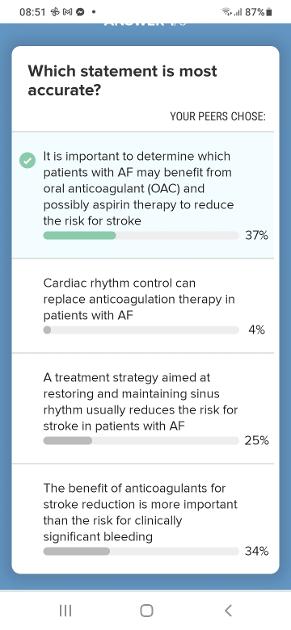reference.medscape.com/view... I know you have to join to see the whole article but it is free.Pic is of first question which presumably was answered in the main by health care professionals. Hmmm.
It also states that maintaining sinus rhythm does not reduce risk of stroke without anticoagulation, which we are constantly repeating but which seems hard for folk to accept.
